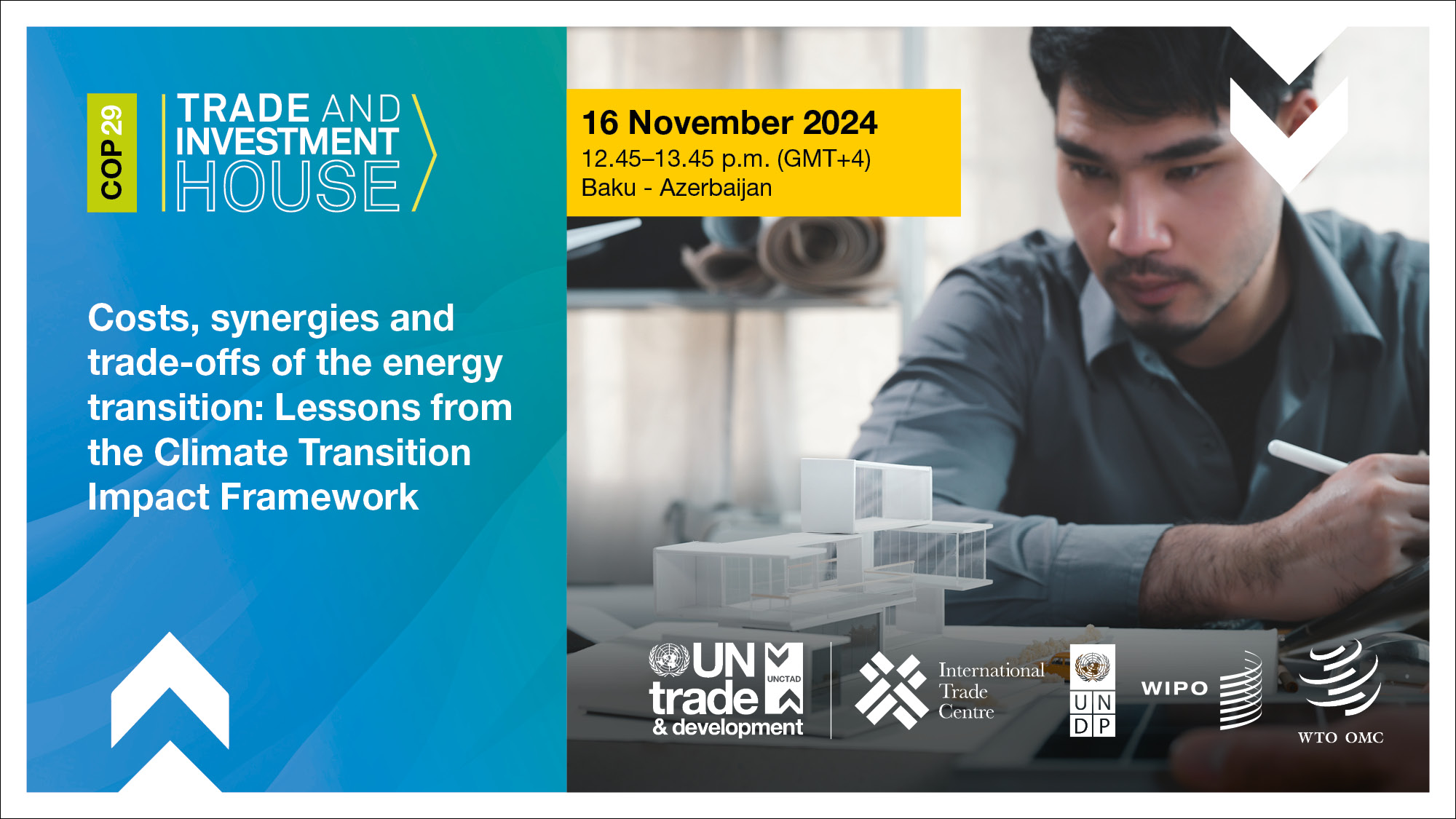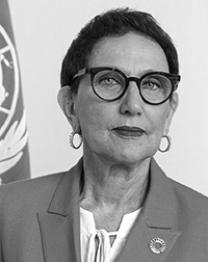Achieving the goals of the Paris Agreement while ensuring an inclusive and equitable transition requires coherent development, climate, and trade policies. Countries’ development, trade, and climate change policies must be aligned to capture co-benefits, including adaptation benefits while minimizing trade-offs between the climate imperative and the Sustainable Development Goals.
The session will explore lessons learned and future exploration from using the Climate Transition Impact Framework (C-TIF) forward-looking approach to compare the potential socioeconomic impacts of different climate action pathways. Further deployment of the tool would be available for developing countries as of 2025 on a demand basis.
The Framework would allow Parties to increase the understanding of the national and regional quantification of socioeconomic impacts of climate action pathways to delineate the trade-offs and synergies that decision-makers should consider in the design of response measures. It aims to equip climate action decision makers with a comprehensive quantitative projected fact base on the transition’s impacts on people.
The findings from the C-TIF can contribute to design energy transition strategies considering equitable and inclusive considerations. The panel, consisting of heads of IGOs, private sector and high-level government officials will discuss the importance of understanding the interrelated socioeconomic impacts of the transition and how the costs, synergies and trade-offs could be thought about.
Rebeca Grynspan, of Costa Rica, became UNCTAD's eighth Secretary-General on 13 September 2021 and is the first woman to lead the organization.
Prior to her UNCTAD appointment, she was the Ibero-American secretary-general from 2014 to 2021, also the first woman to head the organization. During her mandate, she has coordinated the 22-member Iberoamerican Conference and led four key summits of Heads of State and Government.
In 2010 she was appointed Under-Secretary-General of the United Nations and Associate Administrator of the United Nations Development Program (UNDP) and prior to that was UNDP Regional Director for Latin America and the Caribbean.
Prior to joining the United Nations, Ms. Grynspan served as Vice-President of Costa Rica from 1994 to 1998. She was also Minister of Housing, Minister Coordinator of Economic and Social Affairs, and Deputy Minister of Finance. In 2021 she was named Special International Advisor to the newly created Economic and Social Council of Argentina and invited to join as member of the G20 High-Level Independent Panel on Financing the Global Commons for Pandemic Preparedness and Response.
In addition to her experience as a lecturer and advisor to several international organizations, she has been actively involved in key United Nations initiatives, such as the Millennium Project's Task Force on Poverty and Economic Development and the High-level Panel on Financing for Development.
In 2014 and 2015, she was recognized as one of the 50 leading intellectuals of Latin America. And she was recognized as one of the 100 most powerful women in Central America by Forbes magazine.
Ms Grynspan holds a degree in Economics by the University of Costa Rica and a MSc in Economics by the University of Sussex. She has been awarded a Doctorate Honoris Causa by the University of Salamanca, the University of Extremadura and the European University of Madrid in recognition of her outstanding professional achievements.


